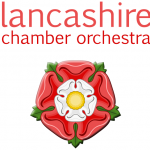Our History
The ensemble was launched into its inaugural rehearsal and from those very modest beginnings almost half a century ago, has grown today’s Lancashire Chamber Orchestra
On a Sunday morning in February 1969, a small group of enthusiastic musicians assembled – in anticipation – outside Padgate Teacher Training College, waiting to be let in through the back door of the music block by David Blott, harpsichordist, organist and Head of Music at the college. Most, but not all, were string teachers from Lancashire County Schools’ Music service responding to an invitation from their Head of Department, John Ashworth to join him and his friend and colleague David Greenlees in the formation of a new ensemble to be called the Lancashire String Orchestra. It was to be conducted by the distinguished cellist Paul Ward, sub-principal in the Hallé orchestra and professor at the Royal Manchester College of Music who shared John Ashworth’s concept “that teachers should not only teach, but that they should also play together and have the opportunity to do so to a high standard under professional direction”. The ensemble was launched into its inaugural rehearsal and from those very modest beginnings almost half a century ago, has grown today’s Lancashire Chamber Orchestra.
Initially, and during those early years as “resident house orchestra” at Padgate, few concerts were given and those were mostly for college functions (with large audiences!), but gradually it began to perform further afield with public concerts in Warrington and Thelwall (at which the soloist was a very young Stephen Hough). The (mostly) string-repertoire ranged from baroque to contemporary works and programming was often ambitious and challenging including 20th century masterpieces by composers such as Hindemith, Bliss and Bartok (his Concerto for Strings, Percussion and Celeste, in which a young Peter Donohoe appeared in the percussion section). Paul Ward retired and was succeeded first by Andrew Penny, and then Richard Vardigans, both of whom were still students on the RMCM’s conducting course. Richard left the UK on his appointment as chorus master at the Mannheim Opera.
Robert (Bob) Chasey had performed as soloist with the Lancashire Chamber orchestra on several occasions whilst still a student at the RMCM (now RNCM), as leader of the Northern Ballet Orchestra and then as principal 2nd violin with the BBC Northern Symphony Orchestra (now BBC Philharmonic) and had come to know the orchestra well. Although Bob had never previously conducted an orchestra, he was approached and agreed to “give it a try”! Thus began a fruitful relationship which lasted some fifteen years, during which time he presided over a considerable expansion in repertoire, an increase in membership with brass, wind and percussion players joining us for most concerts although the string repertoire was, by design, still a core factor. Significantly too we were introduced to new and prestigious performing venues including the Bridgewater Hall, BBC Studio 7 (for concerts for the “Friends of the Phil”), Manchester and Blackburn cathedrals, and began our now much cherished association with choirs from around the region. Bob’s tenure ended with his departure for the Bolton Symphony Orchestra in order to widen his experience in the symphonic repertoire, and some two years later we appointed as our conductor the young American Kenneth (Ken) Woods who had then only very recently arrived in this country. Ken oversaw a remarkable eight year period which markedly developed the orchestra still further. Players and audiences regularly had the engaging experience of programmes often including extremely challenging rarely performed works by little known or neglected established composers such as Hans Gál and from the American contemporary scene. Exhilarating programming, and outstanding performances, of both familiar – and sometimes unfamiliar – works from the classical era: Haydn, Mozart and Schubert regularly featured but Ken will perhaps be principally remembered for his “benchmark” direction of five Beethoven symphonies and for the many concerts in which we were joined by some outstanding soloists including on two occasions himself directing from the cello.
Ken was indeed a most difficult act to follow for he had raised the standards of the orchestra to an entirely new level. By the end of his time with us he had been appointed Chief Guest Conductor of the Orchestra of the Swan, introducing audiences throughout that region to rare and exciting new works and producing much praised CDs (Gál and Schumann) with leading British orchestras. He has also since been appointed Principal Conductor and Artistic Director of the resurrected English Symphony Orchestra in succession to the late Vernon Handley.
Since Ken’s departure the orchestra has to date opted specifically not to appoint a permanent successor choosing instead to invite outstanding conductors (and also some exceptional soloists) from our region to join with us on a “concert to concert” basis and to enjoy the benefits (and privilege) and fresh musical experiences each and every one has since given us. It has been our great pleasure and privilege to play under the direction of Justin Doyle, David Curtis (Orchestra of the Swan) Michael Bawtree, Jon Malaxetxebarria, Richard Davis and Alex Robinson who have all made each concert a most enjoyable and memorable occasion.
A much cherished vital and integral part of the orchestra’s existence has been its association with several choirs from our region with whom we regularly join forces in their programmes. Chief among them over many years have been the Blackburn Musical Society in that city’s cathedral, Altrincham Choral Society at the RNCM and more recently the Chesterfield Philharmonic in the town’s celebrated parish church.
We are always very happy to welcome new players able to combine a high standard of performance on their instrument with a strong commitment to the orchestra’s schedule. We are a friendly group who strive to our best endeavours to perform to the highest possible standard and simply enjoy making music together. Come and join us in this rewarding and stimulating venture!
David Fuller
